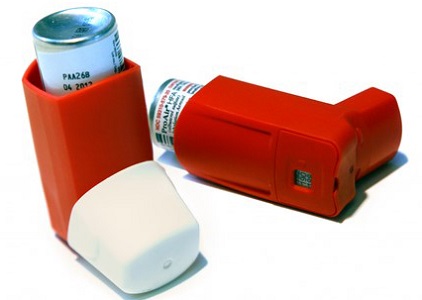Thailand Medical Researchers Develop New Potential Treatment for Lung Infections Caused By Bacteria
Nikhil Prasad Fact checked by:Thailand Medical News Team Jul 07, 2024 1 year, 7 months, 3 weeks, 14 hours, 14 minutes ago
Thailand Medical: Imagine having a simple and convenient inhaler that can effectively treat severe lung infections.
Thailand Medical researchers from Rangsit University, Pathum Thani-Thailand, Walailak University, Nakhon Si Thammarat-Thailand and Prince of Songkla University, Hat Yai-Thailand have been working on developing a new type of inhaler that combines an antibiotic called colistin with tiny gold nanoparticles, creating a powerful treatment option for lung infections caused by harmful bacteria.
 Thailand Medical Researchers Develop New Potential Treatment for Lung Infections Caused By Bacteria.
What Makes This Inhaler Special?
Thailand Medical Researchers Develop New Potential Treatment for Lung Infections Caused By Bacteria.
What Makes This Inhaler Special?
Traditional treatments for lung infections often involve intravenous administration of antibiotics, which can be inconvenient and come with significant side effects. The new inhaler formulation, however, offers several advantages:
-Convenience: The inhaler is portable and easy to use, making it ideal for children and patients with decreased lung function.
-Targeted Delivery: The inhaler delivers the medication directly to the lungs, ensuring that the antibiotic reaches the infection site quickly and effectively.
-Reduced Side Effects: By using gold nanoparticles, the formulation can reduce the toxicity commonly associated with colistin.
How It Works
The new inhaler uses colistin conjugated with chitosan-capped gold nanoparticles (Col-CS-AuNPs). Chitosan is a biopolymer known for its biocompatibility and antibacterial properties. The gold nanoparticles help to enhance the delivery and effectiveness of colistin, making it more efficient in killing bacteria while minimizing side effects.
Testing the Inhaler
Researchers conducted various tests to evaluate the effectiveness and safety of the new inhaler:
-Particle Size and Release: The Col-CS-AuNPs had an average particle size of 174.50 nm. The formulation showed an initial burst release of colistin, with up to 60% of the drug released within the first six hours. This rapid release is crucial for quickly addressing bacterial infections in the lungs.
-Aerosol Properties: The inhaler's aerosol properties were evaluated using specialized equipment. The fine particle fraction (FPF) was 61.08%, indicating that a significant portion of the medication reaches the deep lung areas where infections are most severe.
-Antibacterial Efficacy: The inhaler was tested against Escherichia coli (E. coli), a common bacterial pathogen. The Col-CS-AuNP formulation completely killed E. coli at concentrations five and ten times the minimum inhibitory concentration (MIC) after six and twelve hours of incubation, respectively.
Reduced Toxicity
One of
the main challenges with colistin is its toxicity, which can cause damage to the kidneys and nervous system. The new inhaler formulation significantly reduced the toxicity compared to free colistin. Tests on respiratory tract cell lines showed that the Col-CS-AuNP MDI formulation was much less toxic, making it a safer option for patients.
Stability and Storage
The stability of the Col-CS-AuNP MDI formulation was maintained for at least three months, ensuring that the medication remains effective during storage and use. This long shelf life is essential for practical use in treating lung infections.
Future Implications
The development of this new inhaler is a significant step forward in treating lung infections, especially those caused by multidrug-resistant bacteria. By delivering colistin directly to the lungs in a more effective and safer manner, this inhaler has the potential to improve patient outcomes and reduce the burden of severe respiratory infections.
Conclusion
The innovative combination of colistin with chitosan-capped gold nanoparticles in a metered-dose inhaler represents a promising advancement in pulmonary drug delivery. This new inhaler formulation offers a convenient, effective, and safer treatment option for patients suffering from lung infections. As researchers continue to refine and test this technology, it could soon become a vital tool in the fight against severe respiratory diseases.
The study findings were published in the peer reviewed journal: Antibiotics.
https://www.mdpi.com/2079-6382/13/7/630
For more about the new inhaler for Lung Infections, keep on logging to
Thailand Medical News.
Read Also:
https://www.thailandmedical.news/news/scientists-discover-the-role-of-tox-protein-in-severe-lung-infections-including-covid-19
https://www.thailandmedical.news/news/covid-19-immunity-study-finds-immune-scars-on-patients-with-lung-infections-making-them-more-vulnerable,-warning-for-coming-flu-season
